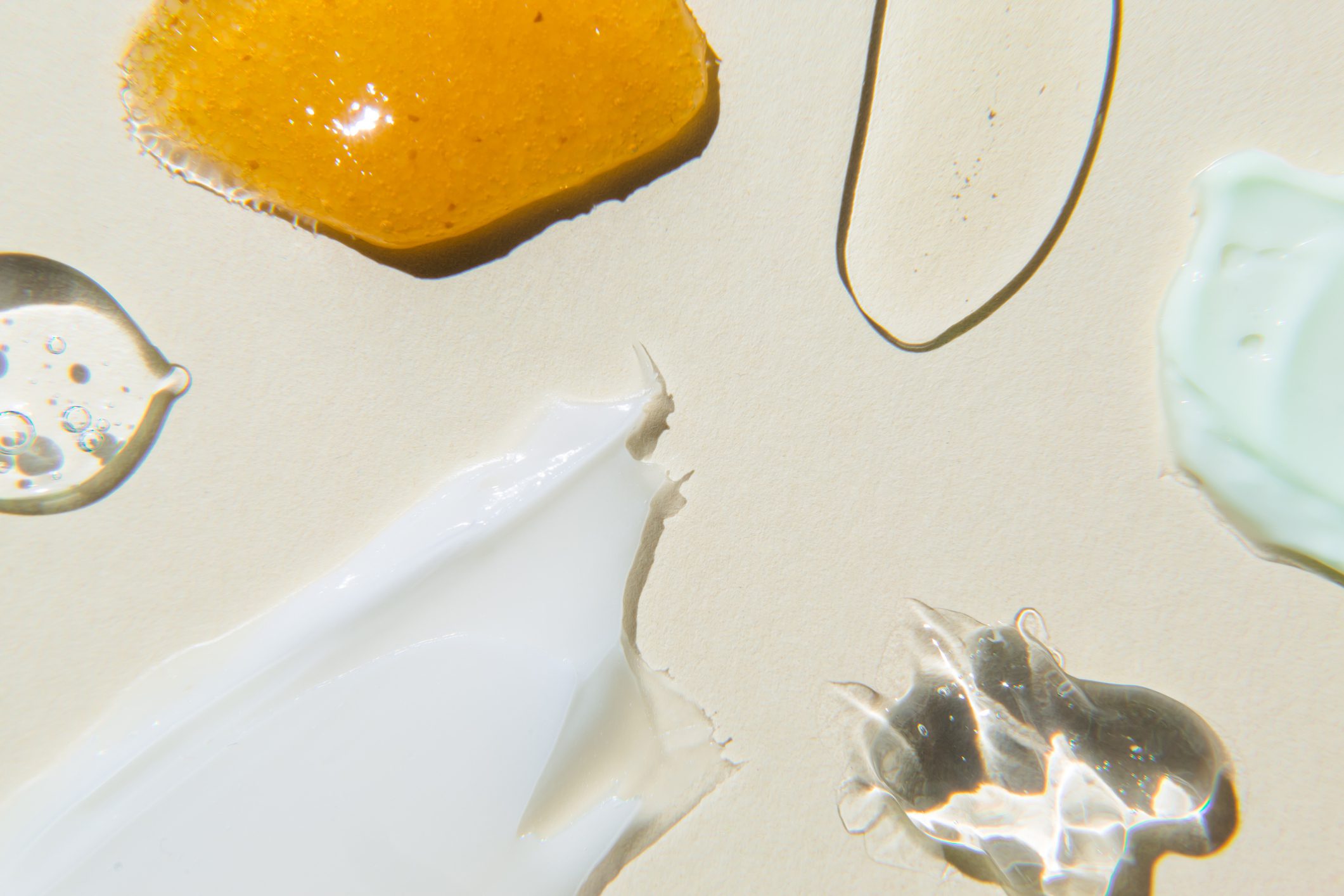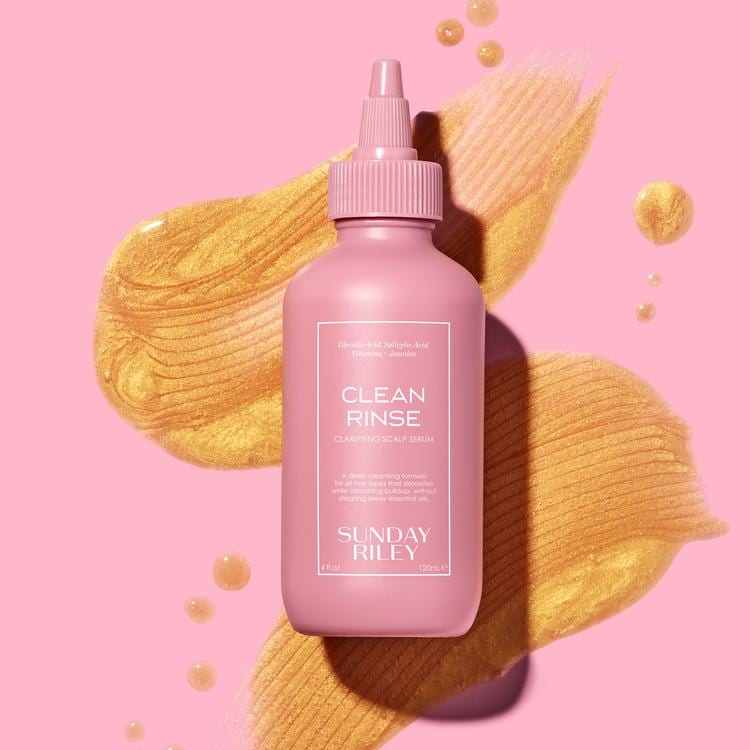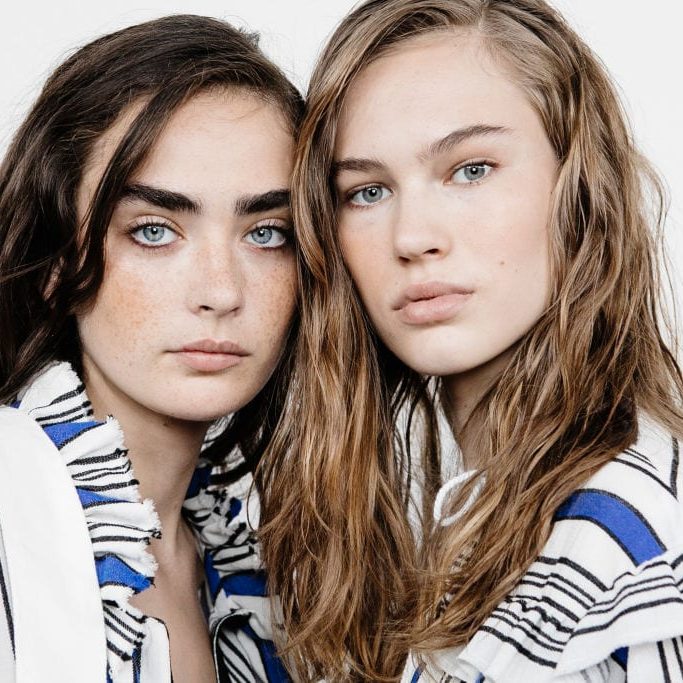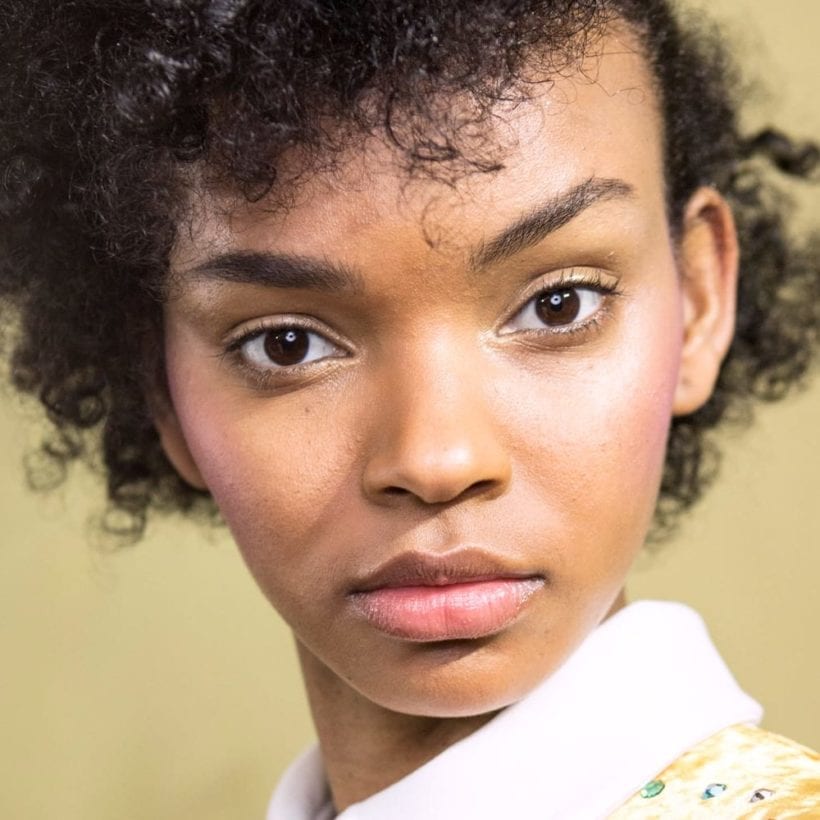My 1b (straight, lots of body) hair was in a bad way. My scalp was dry and flaky, while my hair felt oily to touch at the end of a wash day yet dry at the ends. I had heard about co-washing and detergent-free washing and decided to try both methods. Here’s the lowdown on what happened but before we get into it, let’s go over the basics.
Co-washing explained
Commonly misinterpreted, co-washing actually refers to a method, not a specific type of product. It is taking shampoo out of your wash routine and just using conditioner, or a clarifying conditioner that has been specially formulated for the co-washing process, to repair the damage caused by abrasive sulfates and parabens found in shampoo.
Jackie Gilbert Bauer, Head of Product Development at Hairstory, explains that regular shampoo just isn’t good for our hair. “All shampoos contain detergent, which is what makes the formula foam up. They strip away our natural oils and this leads not only to repair measures — like using conditioner — but also to an overproduction of oil that creates a vicious cycle of washing. Ever shampooed your hair to find that it gets greasy right away? It’s your body’s way of trying to replace the natural oils that your shampoo has destroyed.”
Hairdresser Nicola Holburn, a curly hair specialist, adds, “Co-washing is definitely one to try for those that battle with dry or irritated scalps; coarse/dry hair; or curly hair which is typically more porous. Co-washes usually have no sulfates (or naturally derived sulfates) in them. In short, co-washing will gently cleanse the scalp without over-drying the hair.”
Tackling my hair and scalp issues head-on — the greasiness from overwashing and a dry flaky scalp — it sounded like co-washing would be perfect for me.
Tried and tested
I started out with the avocado co-wash bar from Lush Cosmetics’ Afro haircare range, which I’ll admit was a strange move given my hair type, but I loved the way it foams up much like a shampoo. It works incredibly well on my children’s mixed hair (3a and 3c).
“[It] has a gentle cleansing surfactant which lathers up like baby foam, leaving the hair feeling soft,” explains Sarah Sango, Afro hair specialist at Lush. As I have been conditioned to believe that my hair isn’t clean unless bubbles are present, I really enjoyed the experience of using it on my hair. It felt like it was working!
My hair felt squeaky clean and my dry scalp noticeably improved on using it, which was a massive win for me. But after a few more washes, my hair didn’t have the shine it used to and it was also harder to brush through without breakage. Unsurprisingly, given that it is specially formulated for Afro hair, it works much better on my children’s mixed Afro hair textures.
“Curly hair tends to be naturally drier as the cuticle of the hair is slightly open leading to external factors affecting it more — in comes the benefits of co-washing,” explains hairdresser Nicola Holburn. “Co-washing is not for everyone as it depends on what your priority with your hair is. If you have finer hair and you are looking for body and volume, co-washing won’t be for you.”
Trichologist Sally-Ann Harper, who runs www.scalpandhair.com, told me that, in fact, co-washing is a big reason her clients come to her with scalp problems. “Our skin sheds every 28 days so if you stop washing your hair, you get a really nasty build up on your scalp which can lead to fungal infections. It does depend on your hair type — Afro hair might be okay but Caucasian hair needs washing,” she explained. So, much like our complexions, regular exfoliation is also beneficial for the preferred scalp environment and hair growth. A scalp scrub is definitely recommended at least once a week to exfoliate your scalp to avoid clogged follicles.
So I moved onto New Wash, an alternative cleansing product that promises a ‘detergent-free’ formula, largely made up of essential oils and naturally derived saturated cleansers. It looks and feels much like a conditioner, is slippery and soft, and doesn’t foam at all upon application. New Wash claims to be for all hair types.
Much like co-washing products, it needs to be very thoroughly rinsed out. The trouble is, even when using the in-shower brush and scrubbing really hard, my hair still felt greasy after I dried it. My scalp build-up also returned and the more I used the product, the worse it got.
I decided it was time to get a long-overdue haircut to rid my hair of all the split ends that had grown in over lockdown. Following the advice of several professionals, I stopped washing my hair so often; going down to once every 7-10 days, using New Wash or a clarifying shampoo depending on what I felt it needed. I also used a scalp brush with a little water every day all over my head to ensure no build-up in between washes. This was the winning formula. My hair and scalp have never felt and looked so healthy and I only use a small amount of product, so my routine is a lot more cost and environmentally friendly.
And I don’t feel so bad about relying on regular shampoos anymore either. “There’s a lot of scaremongering around using normal shampoos and how bad they are for our hair but it’s not true. Most shampoos are SLS free now, and there are so many different cleansing agents that can be used anyway,” explains Sally-Ann. “Whenever I get a new client in that has been using the co-wash method, I tell them to go back to shampoo and suddenly within a week they have no more issues.”
Turns out I’m not quite ready to ditch shampoo altogether, but I like the way the products and technique I’m using encourage me to wash my hair less while still enjoying its healthy look and feel.
We only recommend products we have independently researched, tested, and loved. If you purchase a product found through our links, Sunday Edit may earn an affiliate commission.








